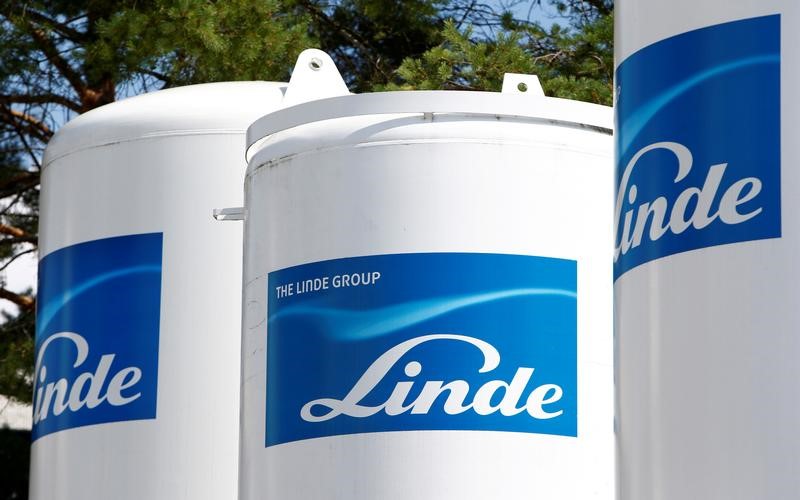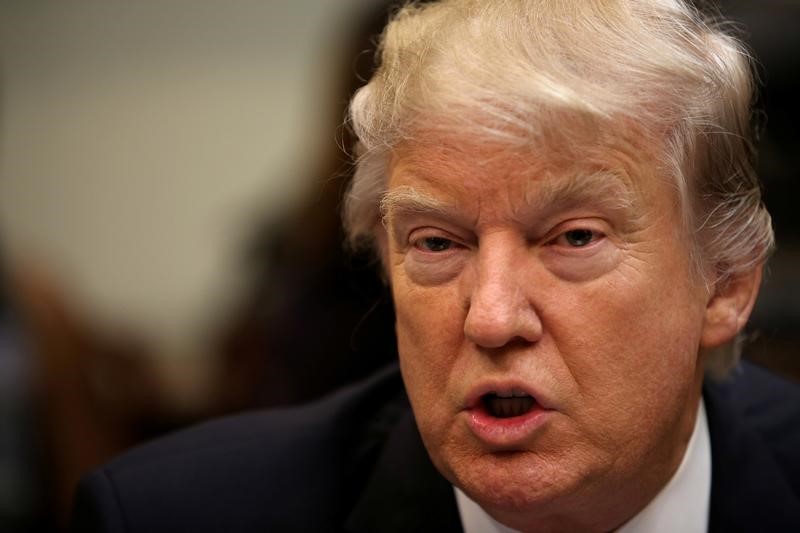By David Lawder and Amanda Becker
WASHINGTON (Reuters) - President Donald Trump promised in a meeting with community bankers on Thursday to strip away some Dodd-Frank financial regulations and ensure they can continue giving small businesses access to capital.
Trump, joined by National Economic Council Director Gary Cohn and Treasury Secretary Steve Mnuchin, said community banks play a "vital role" in the U.S. economy.
"Nearly half of all private-sector workers are employed by small businesses. We must ensure access to capital to small businesses and for small businesses to grow. Community banks are the backbone of small business in America," Trump said at the beginning of the meeting.
Representing the industry were chief executives of nine community banks with assets of around $1 billion or less and the heads of the American Bankers Association and the Independent Community Bankers of America (ICBA).
Bankers who attended the 45-minute meeting said they discussed the role community banks play in rural areas and provided real-world examples about the difficulties smaller banking institutions face.
The bankers emphasized the need for "tailoring regulations to fit the size and complexity of banks," said Chesapeake Financial Shares Inc Chairman and CEO Jeffrey Szyperski, one of the bankers in the meeting.
Chesapeake is a regional bank headquartered in Kilmarnock, Virginia, that has 14 branches and a separate wealth management division.
"We were very focused our message on how do we create a tiered and proportionate regulatory environment for community banks," said Rebeca Romero Rainey, head of Centinel Bank of Taos, a community bank in New Mexico.
The idea seemed to resonate with Trump, who asked questions and showed a pre-existing understanding of the community banking landscape, according to those in attendance.
ICBA, one of the industry groups at the meeting, has advocated a tiered system of regulations that tailor regulations to a bank's size, business model, complexity and risk.
"The type of regulation that you need for a $700 million bank and the risks they present are very different than those for a $200 billion bank or a $1 trillion bank," a White House official said before the meeting.
Larger banks are able to spread their higher compliance costs over much bigger asset and employee bases, while smaller banks struggle with high costs and workloads.
One of the institutions participating, Standard Financial Corp of Monroeville, Pennsylvania, has just nine branches with $488 million in assets and earnings of $559,000 in the quarter ended Dec. 31, 2016. It plans to merge with a rival in southwestern Pennsylvania in a deal that will roughly double its size.
Trump officials cited a dearth of applications to form new community banks and around a 30 percent drop in the number of small U.S. banks since 2008 as the impetus for the meeting. A smaller bank has gone out of business every day for the past seven years, Szyperski said, citing the Dodd-Frank financial reform law enacted after the 2007-2008 financial crisis as a reason new banks had not formed in their stead.
Trump promised the bankers that his February executive order on reducing regulation was "very powerful" and would apply to the community banking sector.
Mnuchin, the former CEO of OneWest bank, a regional lender in Southern California, said at his confirmation hearing in January that onerous regulations are "killing community banks." He pledged to ease those burdens while maintaining "proper" regulation, "so that we don't end up with a world where we only have four big banks in this country."
Also discussed at the meeting were the compliance costs associated with the Consumer Financial Protection Bureau (CFPB), a new regulator created under Dodd-Frank.
The CFPB is a perennial target for Republicans, who want to shift its funding from the Federal Reserve to annual appropriations by Congress and shift its management, now concentrated in a powerful chairman, to a multi-person commission structure.
Separately on Thursday, when asked during a briefing with reporters whether Trump still backs his campaign pledge to restore the Glass-Steagall Act, White House spokesman Sean Spicer said that he did. The law, which separated commercial and investment banking activities, was repealed in 1999 and, if reinstated, would mainly apply to larger banks.

The Trump administration has not made any moves thus far to break up big banks. Investors have bid up bank stocks since Trump's election on expectations they would get regulatory relief but not be forced to divest. There is little indication such legislation is an imminent priority that will be taken up by the administration or the U.S. Congress.
